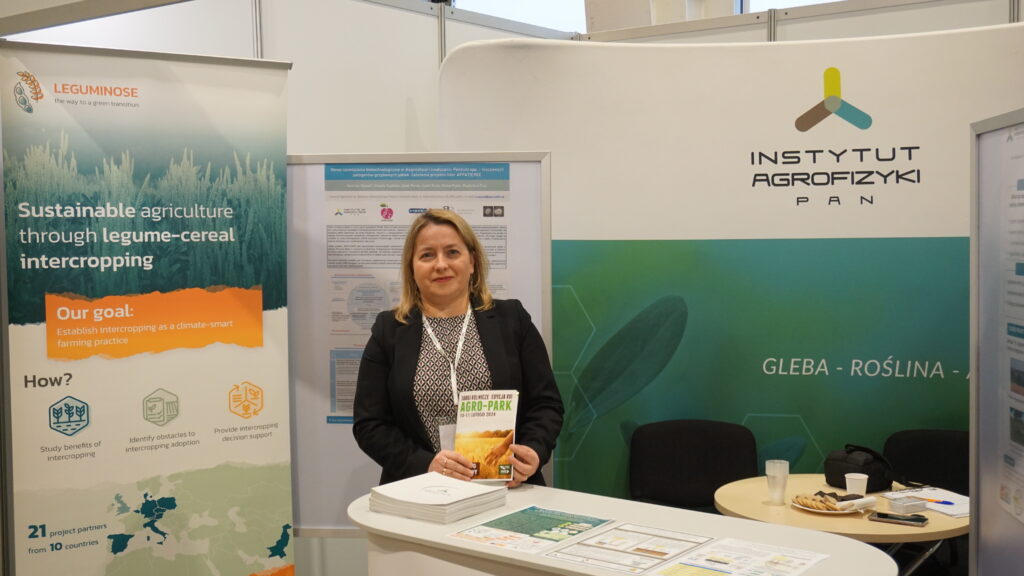We recently had the pleasure of participating in the Agro Park 2024 fair. This bustling event brought together nearly 17,000 visitors and over 150 exhibitors from the agricultural industry. Our Polish partners around Magdalena Frąc from IAPAS showcased our efforts in promoting sustainable agriculture.
At our booth, attendees had the opportunity to learn about our goals and preliminary research findings around legume-cereal intercropping. Intercropping is a farming method where two or more crops are planted together in the same field. This practise offers several advantages over traditional monoculture farming:
- Improved soil health: By planting complementary crops together, intercropping enhances soil biodiversity, reduces erosion, and promotes nutrient cycling. This leads to more resilient and productive agricultural ecosystems.
- Reduced need for synthetic fertilisers and pesticides: The diverse plant species grown together can naturally suppress pests and diseases, reducing the reliance on chemical inputs. This not only benefits the environment by minimising chemical runoff and pollution but also reduces production costs for farmers.
- Increased biodiversity: By creating a more varied habitat, intercropping supports a wide range of beneficial organisms, including pollinators, natural predators of pests, and soil microorganisms.
Insightful discussions at the Agro Park fair
We discussed these benefits of legume-cereal intercropping with the visitors of our booth at Agro Park 2024. We also engaged in discussions about the barriers to adopting intercropping and potentials solutions to overcoming these barriers. The engaging discussions at the fair strengthened our motivation to work towards our mission of establishing intercropping as a widespread, sustainable agricultural practise.
The Agro Park Agricultural Fair provided an excellent platform for us to connect with farmers and industry professionals. We are grateful for the opportunity to share our insights and discover new ways for collaborating with stakeholders to advance sustainable farming practices.
